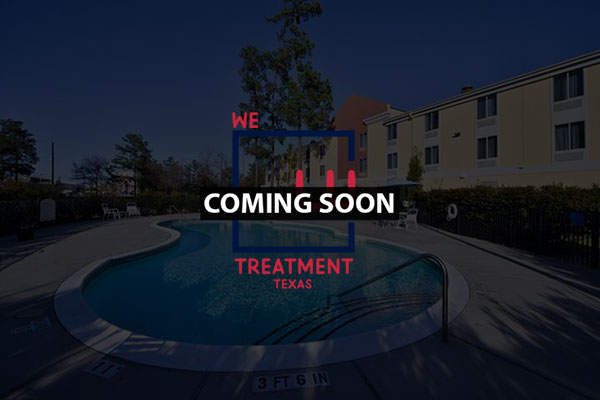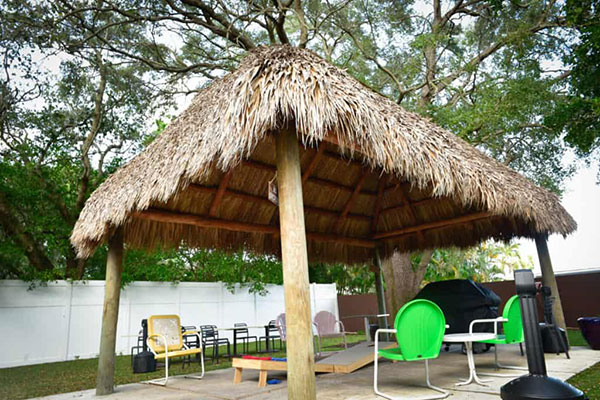Drug Addiction Counseling
What is drug counseling? Drug addiction counseling is a comprehensive and multi-faceted approach to addiction treatment. It provides individuals the tools and support to overcome addiction and achieve long-term recovery. It is a process that involves working with a trained therapist or counselor to address the psychological, social, and behavioral factors that contribute to drug addiction.
Drug addiction counseling can be an essential component of addiction treatment, as it helps individuals understand the underlying causes of their addiction and develop effective strategies for coping with triggers and cravings. It can also help individuals identify and address co-occurring mental health conditions, such as depression or anxiety, which may contribute to addiction.
The counseling process typically begins with an initial assessment. The therapist or counselor will gather information about the individual’s drug use history, mental health history, and other factors that may contribute to addiction. Based on this assessment, the therapist will develop a personalized treatment plan that addresses the individual’s unique needs and goals.
Drug addiction counseling may involve individual or group therapy sessions, depending on the individual’s needs and preferences. Individual therapy sessions allow individuals to work one-on-one with a therapist or counselor to address specific issues related to their addiction, such as trauma, family conflict, or low self-esteem. Group therapy sessions provide individuals with the opportunity to connect with others who are going through similar experiences and to learn from each other’s challenges and successes.
The therapeutic approaches used in drug addiction counseling can vary depending on the individual’s needs and goals. Some common therapeutic approaches include cognitive-behavioral therapy, which focuses on identifying and changing negative thought patterns and behaviors; motivational interviewing, which helps individuals build motivation and confidence to make positive changes; and contingency management, which uses rewards to reinforce positive behaviors and encourage abstinence.
In addition to therapy sessions, drug addiction counseling may include other components of addiction treatment, such as medication-assisted treatment, support groups, and aftercare planning. Medication-assisted treatment involves using medications to reduce cravings and withdrawal symptoms, while support groups provide individuals with ongoing support and encouragement as they work toward long-term recovery.
Aftercare planning helps individuals develop a plan for maintaining sobriety after treatment and may include referrals to community resources, ongoing therapy, and other support services.
Drug addiction counseling is a powerful and effective tool for individuals struggling with addiction. By providing a safe and supportive environment, addressing underlying issues, and developing effective coping strategies, drug addiction counseling can help individuals break the cycle of addiction and achieve long-term recovery.
The benefits of Alcohol And Drug Counseling
Alcohol and drug addiction counseling provides individuals with the tools and support to overcome their addiction and achieve long-term recovery. There are many benefits to seeking counseling for addiction, including improved mental and physical health, stronger relationships, and a greater sense of purpose and fulfillment in life.
One of the primary benefits of alcohol and drug addiction counseling is that it provides individuals with a safe and non-judgmental environment to explore their addiction and its underlying causes. Counselors and therapists are trained to listen with empathy and compassion, helping individuals feel understood and supported as they recover. This can be particularly important for individuals who may feel ashamed or stigmatized by their addiction.
Another benefit of addiction counseling is that it can help individuals develop the skills and strategies to manage triggers and cravings. Triggers are events, situations, or emotions that can cause individuals to feel the urge to use drugs or alcohol. Individuals can reduce their relapse risk and maintain long-term sobriety by identifying triggers and developing healthy coping mechanisms.
Counseling can also help individuals address co-occurring mental health conditions contributing to their addiction. For example, many individuals struggling with addiction also experience depression, anxiety, or post-traumatic stress disorder (PTSD). By addressing these underlying mental health issues, individuals can improve their overall well-being and reduce the risk of relapse.
Another benefit of addiction counseling is that it can help individuals improve their relationships with family and friends. Addiction can be isolating, and individuals struggling with addiction may feel ashamed or embarrassed to reach out for support. Counseling can help individuals develop stronger communication skills and build healthier relationships, providing a powerful source of motivation and support for recovery.
Finally, addiction counseling can help individuals develop a greater sense of purpose and fulfillment in life. Addiction can often leave individuals feeling lost or disconnected from their values and goals. Counseling can help individuals identify their strengths and values and develop a sense of purpose and meaning in life that can serve as a powerful motivator for recovery.
Overall, alcohol and drug addiction counseling are powerful tools that can help individuals overcome addiction and achieve long-term recovery. By providing a safe and supportive environment, addressing underlying issues, and developing healthy coping mechanisms, addiction counseling can help individuals live a happier, healthier, and more fulfilling life.

Skip To:
Learn More:
- Addiction Counseling Near Me, Drug & Alcohol Therapies
- Dual Diagnosis Treatment
- Dual Diagnosis vs Co-Occurring Disorders
- Addiction Treatment Center and Dual Diagnosis
- Citrus Heights Alcohol Rehab & Drug Addiction Treatment Programs
- Inyo County Alcohol and Drug Addiction Treatment
- Drug Addiction Treatment Swedesboro NJ
- What Makes for Top Rated Drug Addiction Treatment Centers?
Get Help. Get Better. Get Your Life Back.
Searching for Accredited Drug and Alcohol Rehab Centers Near You?
Even if you have failed previously and relapsed, or are in the middle of a difficult crisis, we stand ready to support you. Our trusted behavioral health specialists will not give up on you. When you feel ready or just want someone to speak to about therapy alternatives to change your life call us. Even if we cannot assist you, we will lead you to wherever you can get support. There is no obligation. Call our hotline today.
(844) 597-1011Most Popular Drug Counseling FAQs
-
Are Drug And Alcohol Counseling Good?
Yes, drug and alcohol counseling can benefit individuals struggling with addiction. Counseling provides individuals with the tools and support to overcome their addiction and achieve long-term recovery. It can help individuals develop healthy coping mechanisms, address underlying mental health issues, and build stronger relationships. Ultimately, counseling can help individuals live happier, healthier, and more fulfilling life.
-
How to Find Drug Counseling Near Me?
There are several ways to find drug counseling near you. You can start by asking your primary care physician or a mental health professional for a referral. You can also search online for local counseling centers or treatment facilities specializing in addiction counseling. Many community organizations and support groups, such as Alcoholics Anonymous and Narcotics Anonymous, offer free counseling services and can provide referrals to local counseling resources.
-
Is It Hard To Find Drug And Alcohol Counseling Near Me?
Finding drug and alcohol counseling near you may depend on your location and the availability of local resources. However, there are many options for finding counseling, including online resources and support groups. It’s important to note that counseling for addiction can be a personal decision, and finding a counselor or treatment facility that feels the right fit may take some time. However, with persistence and a willingness to explore different options, you can find the support you need to overcome addiction and achieve long-term recovery.
Drug And Alcohol Counseling Facts
Drug And Alcohol Counseling Overview
Drug and alcohol counseling is a form of therapy that helps individuals overcome substance abuse disorders. These disorders are characterized by repeated and excessive use of drugs or alcohol despite negative consequences. Drug and alcohol counselors work with individuals to develop coping mechanisms and strategies to address the underlying causes of their addiction.
They also provide emotional support and guidance as individuals navigate the recovery process. Counseling sessions may involve individual or group therapy and can occur in various settings, including outpatient clinics, residential treatment facilities, and community centers. The goal of drug and alcohol counseling is to help individuals achieve and maintain long-term recovery, improve their overall quality of life, and reduce the risk of relapse.
Drug And Alcohol Counseling Benefits
- Provides a safe and non-judgmental environment for individuals to share their struggles with addiction.
- Helps individuals develop coping mechanisms and strategies to manage triggers and cravings
- Addresses the underlying causes of addiction, such as trauma, stress, and mental health disorders.
- Provides emotional support and guidance during the recovery process.
- Improves communication and interpersonal skills, enhancing relationships with family and friends.
- It helps individuals set and achieve personal goals, such as maintaining sobriety, finding employment, and improving their physical health.
- Reduces the risk of relapse by providing ongoing support and encouragement.
Drug And Alcohol Counseling Statistics
This section will explore statistics related to drug and alcohol counseling in the United States. These statistics provide insight into the prevalence of substance abuse disorders, the effectiveness of treatment methods, and the challenges individuals face when seeking treatment. By examining these statistics, we can better understand the impact of drug and alcohol counseling and identify areas where improvements can be made to support individuals struggling with addiction.
6.1 million
In 2019, an estimated 6.1 million people in the U.S. received treatment for alcohol or drug use at a specialty facility.
Source: SAMHSA
17.8 million
In 2020, an estimated 17.8 million adults aged 18 or older needed but did not receive treatment for illicit drug use and/or alcohol use in the past year.
Source: NSDUH
Great Effectiveness
Evidence-based behavioral therapies, such as cognitive-behavioral therapy (CBT) and motivational interviewing (MI), effectively treat substance use disorders.
Source: NIDA

Get Your Life Back
Find Hope & Recovery. Get Safe Comfortable Detox, Addiction Rehab & Dual Diagnosis High-Quality Care.
Hotline(844) 597-1011Online Drug Counseling

Online counseling drug addiction, and face-to-face counseling are both effective methods of addressing addiction and achieving long-term recovery. Both counseling forms have unique benefits and drawbacks; which is better for you may depend on your needs and preferences.
One of the primary benefits of online drug counseling is convenience. Online counseling allows individuals to access treatment from the comfort of their homes, which can be particularly helpful for individuals who live in remote or rural areas, have mobility issues, or have busy schedules.
Online counseling also allows individuals to receive treatment without taking time off from work or traveling to a treatment center, making it easier to fit treatment into their daily lives.
Another benefit of online drug counseling is that it may be more affordable than face-to-face counseling. Because online counseling does not require the overhead costs associated with maintaining a physical office space, it may be less expensive than traditional counseling. Additionally, some online counseling services offer sliding scale fees or accept insurance, which can further reduce the cost of treatment.
Online drug counseling may also provide individuals with a greater sense of privacy and anonymity. Some individuals may feel more comfortable discussing sensitive topics, such as addiction and mental health, in the privacy of their own homes. Additionally, online counseling may allow individuals to receive treatment without disclosing their addiction to friends, family members, or coworkers.
However, there are also some potential drawbacks to online drug counseling. One of the primary concerns is that online counseling may not provide the same level of personal connection and support as face-to-face counseling. Some individuals may feel more comfortable discussing sensitive topics in person and benefit from the personal connection of meeting with a counselor face-to-face.
Another concern is that online counseling may not be suitable for individuals with severe addiction or mental health issues. Individuals with complex mental health needs may sometimes require more intensive treatment, such as inpatient or outpatient care, that cannot be provided through online counseling.
Ultimately, whether online drug counseling or face-to-face counseling is better for you may depend on your individual needs and preferences. It’s important to consider each option’s pros and cons carefully and consult a mental health professional to determine the most appropriate counseling.
First-class Facilities & Amenities
World-class High-Quality Addiction & Mental Health Rehabilitation Treatment
Rehab Centers TourRenowned Addiction Centers. Serene Private Facilities. Inpatient rehab programs vary.
Addiction Helpline(844) 597-1011Proven recovery success experience, backed by a Team w/ History of:
15+
Years of Unified Experience
100s
5-Star Reviews Across Our Centers
10K
Recovery Success Stories Across Our Network
- Low Patient to Therapist Ratio
- Onsite Medical Detox Center
- Comprehensive Dual-Diagnosis Treatment
- Complimentary Family & Alumni Programs
- Coaching, Recovery & Personal Development Events
Drug & Alcohol Addiction Treatment
Drug and alcohol addiction treatment involves a range of therapies and interventions aimed at helping individuals overcome their addiction and achieve long-term recovery. Addiction treatment may include a combination of medical, behavioral, and holistic approaches and may be tailored to meet each person’s needs.
One of the first steps in addiction treatment is detoxification, which involves removing drugs or alcohol from the body. Detoxification is often done under the supervision of a medical professional and may involve medication-assisted treatment to help manage withdrawal symptoms.

Following detoxification, addiction treatment may involve a range of therapies to address the underlying psychological and emotional factors contributing to addiction. Behavioral therapies, such as cognitive-behavioral therapy (CBT) and dialectical behavior therapy (DBT), may help individuals develop healthier coping mechanisms and address negative thought patterns and behaviors.
Holistic therapies, such as yoga, meditation, and acupuncture, may also be used in addiction treatment to help individuals manage stress and promote overall wellness. Family therapy and support groups, such as Alcoholics Anonymous and Narcotics Anonymous, may also provide individuals with a supportive community of peers and loved ones who understand the challenges of addiction.
In addition to therapy and counseling, addiction treatment may involve medication-assisted treatment to help manage withdrawal symptoms and reduce cravings. Medications such as buprenorphine, methadone, and naltrexone may help individuals manage opioid addiction, while medications such as acamprosate and disulfiram may be used to help individuals manage alcohol addiction.
Ultimately, addiction treatment aims to help individuals achieve long-term recovery and improve their overall quality of life. Treatment may be delivered in various settings, including inpatient or outpatient treatment centers, and may be tailored to meet each person’s needs. With the right support and treatment, individuals can overcome addiction and achieve a healthier, happier, and more fulfilling life.
World-class, Accredited, 5-Star Reviewed, Effective Addiction & Mental Health Programs. Complete Behavioral Health Inpatient Rehab, Detox plus Co-occuring Disorders Therapy.
CALL(844) 597-1011End the Addiction Pain. End the Emotional Rollercoaster. Get Your Life Back. Start Drug, Alcohol & Dual Diagnosis Mental Health Treatment Now. Get Free No-obligation Guidance by Substance Abuse Specialists Who Understand Addiction & Mental Health Recovery & Know How to Help.
We Level Up Drug Counseling & Dual Diagnosis Treatment
The definition of dual diagnosis (also referred to as co-occurring disorders) can differ between institutions. However, it is generally described as the specific treatment of someone diagnosed with a substance use disorder and a mental health disorder simultaneously. Treating dual-diagnosis clients is a critical aspect of our inpatient treatment experience because co-occurring disorders are strongly correlated with instances of substance abuse.
Creating a treatment plan that addresses the physical aspects of withdrawal, the psychological connection with drug use, and managing underlying mental health disorders is part of setting clients up for success. A thorough mental health analysis identifies possibilities for treatment. Meeting with mental health counselors and medical care providers means access to behavioral therapy and medication treatment. At our dual diagnosis treatment center, We Level Up can implement the highest quality of care.
We recognize the fragile complexities of how mental and substance abuse disorders can influence others and sometimes result in a vicious cycle of addiction. That’s why we offer specialized treatment in dual-diagnosis cases to provide the most excellent chance of true healing and long-lasting recovery.
Accepting that you may be living with a mental illness can be challenging. However, treating the presenting substance abuse case can be magnitudes easier once properly diagnosed and treated. Only a properly trained medical professional can diagnose these underlying conditions. If you believe you are suffering from a disorder alongside addiction, we urge you to seek a qualified treatment center to begin your journey to recovery. Call We Level Up today.

We Level Up Texas
Drug & Alcohol Addiction Treatment Center w/Detox
Licensed & Accredited w/ 5-star reviews.- Inpatient addiction rehab center w/medical detox
- Addiction treatment and detox for alcohol, benzo, heroin, opioid, and more.
- Secondary mental health treatment available as part of our dual diagnosis programs.

We Level Up California
Drug & Alcohol Addiction Treatment Center w/Detox
Licensed & Accredited w/ 5-star reviews.- Inpatient addiction rehab center w/medical detox
- Addiction treatment and detox for alcohol, benzo, heroin, opioid, and more.
- Secondary mental health treatment available as part of our dual diagnosis programs.

We Level Up Fort Lauderdale
Premier Behavioral Health Treatment Center
Licensed & Accredited w/ 5-star reviews.- Inpatient mental health treatment center
- Therapy for depression, anxiety, trauma, bipolar disorder, PTSD, and more.
- Dual diagnosis rehab programs available
Experience Transformative Recovery at We Level Up Treatment Centers.
See our authentic success stories. Get inspired. Get the help you deserve.
Start a New Life
Begin with a free call to an addiction & behavioral health treatment advisor. Learn more about our dual-diagnosis programs. The We Level Up Treatment Center Network delivers recovery programs that vary by each treatment facility. Call to learn more.
- Personalized Care
- Caring Accountable Staff
- World-class Amenities
- Licensed & Accredited
- Renowned w/ 100s 5-Star Reviews
We’ll Call You
Drug Counseling & Alcoholism Treatment Informative Video
Alcoholism, also referred to as alcohol addiction or dependence, is a state that arises due to the overconsumption of alcohol. The condition is marked by repeated and extreme drinking patterns that can lead to addiction and negatively impact an individual’s life. To combat alcoholism and help individuals overcome the disorder and stop harmful drinking habits, diverse strategies and approaches are utilized. These methods aim to tackle the root causes of the problem and assist the person in their recovery journey.
Search We Level Up Drug Counseling Resources
Sources
- NIDA – Behavioral Therapies: https://www.drugabuse.gov/publications/principles-drug-addiction-treatment/evidence-based-approaches-to-drug-addiction-treatment/behavioral-therapies
- SAMHSA – Treatment: https://www.samhsa.gov/treatment
- NIAAA – Treatment for Alcohol Problems: Finding and Getting Help: https://www.niaaa.nih.gov/publications/brochures-and-fact-sheets/treatment-alcohol-problems-finding-and-getting-help
- CDC – Medications for Opioid Use Disorder: https://www.cdc.gov/
- NSDUH – Substance Use and Mental Health Reports: https://www.samhsa.gov/
- ONDCP – Evidence-Based Prevention and Treatment: https://www.whitehouse.gov/
- VA Substance Use Disorder Program – Treatment: https://www.mentalhealth.va.gov/substance-use/treatment.asp
- NCADD – Treatment and Recovery: https://www.ncadd.org/about-addiction/treatment
- Partnership to End Addiction – Treatment: https://drugfree.org/treatment/
- ASAM – What is Addiction Medicine?: https://www.asam.org/resources/about-addiction-medicine/what-is-addiction-medicine


